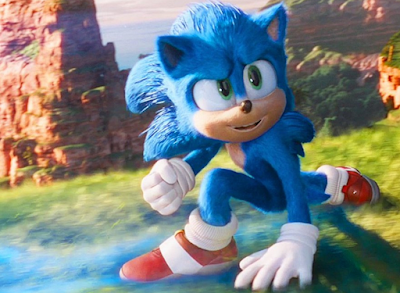The year is 1929, the place is British-ruled Palestine, and Miss Fisher has taken her crime-solving antics global, jumping across rooftops to rescue imprisoned young agitator Shirin Abbas (Izabella Yena), niece of Sheikh Kahlil Abbas (Kal Naga).
Exactly how this ties into a series of murders in London, or a lengthy stay at the country home of Lord Lofthouse (Daniel Lapaine), or the mysterious disappearance of an entire village in the deserts of Arabia, or a giant emerald that might possibly be cursed (according to a professor played by John Walters) isn’t exactly a mystery, but there’s little denying this is a movie (directed by Tony Tisle and written by Deb Cox) with a lot of plot.
To be fair, this is a film that needs it: while the costumes are as fantastic as always and various Melbourne locations do a decent job of standing in for various London locations, visually this is nothing to write home about. Possibly any attempt at a more striking style would have been too much of a break from the original television series; it's still surprising that, at a time when even low budget Australian films often feature striking visuals, this is very much a meat and potatoes effort.
This results in the film's strongest stretch being the middle act, which is basically a traditional murder mystery set in an English country manor. Why the whole film wasn't like this is both obvious and annoying; clearly a big screen version of Miss Fisher needed to be bigger than the television version, and yet the closer this gets to the small screen version the stronger it becomes.
Both the scenes in Palestine - which involve a somewhat lacklustre motorcycle chase and a lot of scrabbling around on the roof of a speeding train that is clearly an old "Red Rattler" carriage from the Newport railway museum - and a final act set in the desert feel like the film biting off more than it can comfortably chew, striving for a kind of Indiana Jones energy and ending up closer to Quigley Down Under.
But this is a film where those kind of judgments are largely beside the point. The appeal here is seeing Miss Fisher looking glamourous while sticking it to pompous toffs, throwing quips around, and making the clearly infatuated Detective Inspector Jack Robinson (Nathan Page) squirm. On that level, this gets pretty much everything right.
Davis is clearly the shining star here, giving Miss Fisher charm and charisma to spare. If this film has a serious problem, it's that it thinks, however briefly, that widescreen locations are what people are coming here to see. Every moment that Miss Fisher isn't front and center on screen is a moment wasted; she's not just the best thing in this film, she's the only thing that makes it a film, and her fans will find plenty here to applaud.
- Anthony Morris




